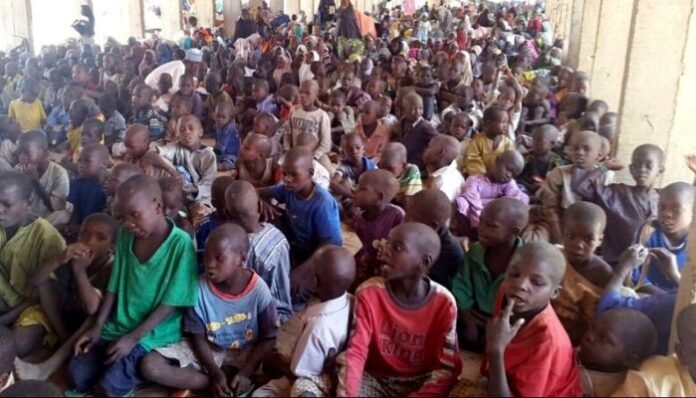75% of Nigerian children not literate amid low priority for education
By Jeph Ajobaju, Chief Copy Editor
Up to 75 per cent of children in Nigeria aged between seven and 14 years cannot read a simple sentence or solve a basic mathematics problem, says the United Nations Children’s Fund (UNICEF).
UNICEF has promised to provide additional support to remedy the situation but also urged Muhammadu Buhari to deliver on his pledge to proritise education
“I join the global call to ‘invest in people, prioritize education’ and urge Nigeria to deliver on the commitments made by … President Muhammadu Buhari at the UN Secretary General’s Transforming Education Summit in September 2022 to end the global learning crisis,” UNICEF Country Representative Christian Munduate said.
“In Nigeria, 75 per cent of children aged 7 to 14 years cannot read a simple sentence or solve a basic math problem. For children to be able to read to learn, they must be able to learn to read in the first three years of schooling.”
UNICEF urged Nigeria to transform education and to prevent the loss of hard-fought gains in getting children into school, particularly poor, rural children and girls, and ensuring they remain in school, complete their education, and achieve to their full potential.
__________________________________________________________________
Related articles:
Nigerian children at risk of disability and death from preventable diseases, says UNICEF
UK and UNICEF partner Abuja to enrol 1.5m Northern girls in school
Northern CSOs dismiss Buhari’s poverty fight, seek probe of palliative spending
__________________________________________________________________
UNICEF promises additional help
Munduate said UNICEF, together with partners, would continue to support federal and state governments to
- reduce the number of out-of-school children by providing safe, secure and violence free learning environments both in formal and non-formal settings
- engage communities on the importance of education
- provide cash transfers to households and to schools.
“Improve learning outcomes by expanding access to quality early childhood education, scaling foundational literacy and numeracy programmes, and offering digital skills and (https://nigeria.learningpassport.org/), life and employability skills to adolescents to enable the school to work transition,” Munduate added, per The Guardian.
“Increase domestic spending on education to meet the 20% global benchmark by 2030 and to address the infrastructure and teaching backlog that are affecting all children’s access to inclusive and quality education.
“As Nigeria’s presidential elections draw near, on behalf of UNICEF and the children in Nigeria, I call on all presidential candidates to include investments in education as a top priority in their manifestos.”













